
The Weaker Sex is a 1933 French comedy film directed by Robert Siodmak and starring Mireille Balin, Victor Boucher and Pierre Brasseur. It was based on a 1929 stage farce of the same name by Édouard Bourdet.

The Prize is a 1950 French comedy film directed by Jean Boyer and starring Bourvil, Jacqueline Pagnol and Mireille Perrey. It is based on the 1887 novel Le Rosier de Madame Husson. It was shot at the Saint-Maurice Studios in Paris and on location in Normandy including around Eure. The film's sets were designed by the art director Robert Giordani. It was a sizeable box office hit, being the seventh most popular film of the year in France.

The Courier of Lyon is a 1937 French historical drama film directed by Claude Autant-Lara and Maurice Lehmann and starring Pierre Blanchar, Dita Parlo and Jacques Copeau. It is based on the Courrier de Lyon case of 1796. A previous silent film inspired by the story, was released in 1923.
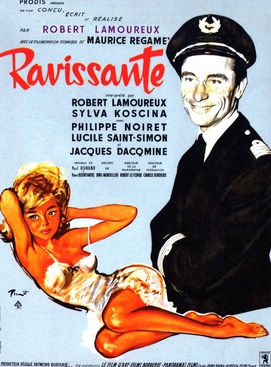
Ravishing is a 1960 French-Italian comedy film directed by Robert Lamoureux and starring Lamoureux, Sylva Koscina and Philippe Noiret.

Francis the First is a 1937 French historical comedy film directed by Christian-Jaque and starring Fernandel, Mona Goya and Alexandre Rignault. It was shot at the Cité Elgé studios in Paris. The film's sets were designed by the art director Pierre Schild.

The Pont-Biquet Family is a 1935 French comedy film directed by Christian-Jaque and starring Gina Manès, Armand Bernard and Paul Pauley. It is based on the 1897 play of the same title by Alexandre Bisson. The film's sets were designed by the art directors Henri Ménessier and René Renoux.

One Night's Secret is a 1934 French comedy film directed by Félix Gandéra and starring Armand Bernard, Albert Préjean and Lisette Lanvin. The film's sets were designed by the art director Robert Gys.

Vertigo is a 1947 French drama film directed by Richard Pottier and starring Raymond Rouleau, Micheline Francey and Jean Debucourt. The film's sets were designed by the art director Robert Hubert.

Toâ is a 1949 French comedy film directed by Sacha Guitry and starring Guitry, Lana Marconi and Mireille Perrey. It is an adaptation of Guitry's own play of the same title. Location shooting took place around the Théâtre du Gymnase in Paris. The film's sets were designed by the art director Nersès Bartau.

The Grand Hotel Affair is a 1946 French comedy mystery film directed by André Hugon and starring Henri Alibert, Édouard Delmont and Noël Roquevert. It was shot at the Marseille Studios of Gaumont and on location around the city.. The film's sets were designed by the art director Gilbert Garcin.
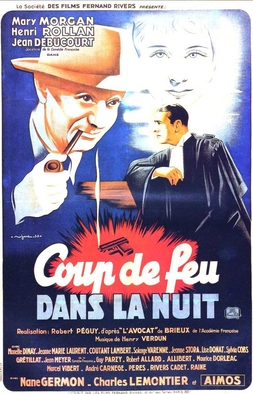
Shot in the Night is a 1943 French crime drama film directed by Robert Péguy and starring Mary Morgan, Henri Rollan, Jean Debucourt and Raymond Aimos. It is based on the 1922 play L’Avocat by Eugène Brieux. The film's sets were designed by the art director Marcel Mary.

The Most Beautiful Girl in the World is a 1951 French comedy film directed by Christian Stengel and starring Françoise Arnoul, Jacqueline Gauthier, Paul Bernard and Nadine Alari. It marked Arnoul's first starring role. The film's sets were designed by the art director Robert Hubert.
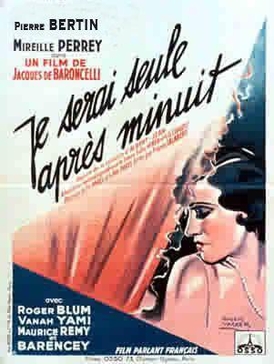
I'll Be Alone After Midnight is a 1931 French comedy film directed by Jacques de Baroncelli and starring Mireille Perrey, Pierre Bertin and Vanah Yami. The film's sets were designed by the art director Robert Gys.

Home Port is a 1943 French comedy drama film directed by Jean Choux and starring Michèle Alfa, René Dary and Édouard Delmont. The film's sets were designed by the art directors Lucien Aguettand and Raymond Nègre.

Sénéchal the Magnificent is a 1957 French-Italian comedy film directed by Jean Boyer and starring Fernandel, Nadia Gray and Madeleine Barbulée. It was shot at Billancourt Studios. The film's sets were designed by the art director Robert Giordani. It is also known by the alternative title His Greatest Role.
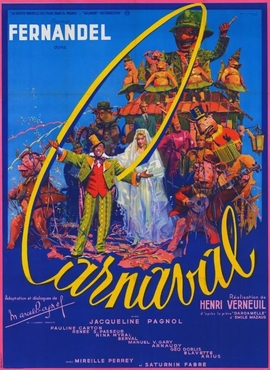
Carnival is a 1953 French comedy film directed by Henri Verneuil and starring Fernandel, Jacqueline Pagnol and Pauline Carton. It was based on the play Dardamelle by Emile Mazaud. It was shot at the Marseille Studios of Marcel Pagnol and on location around Aix-en-Provence. The film's sets were designed by the art director Robert Giordani.
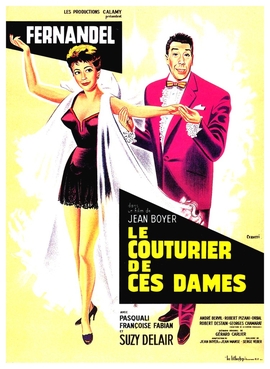
Fernandel the Dressmaker is a 1956 French comedy film directed by Jean Boyer and starring Fernandel, Suzy Delair and Fred Pasquali. It was shot at the Saint-Maurice Studios in Paris and on location in the city's Place du Trocadéro. The film's sets were designed by the art director Robert Giordani.

















